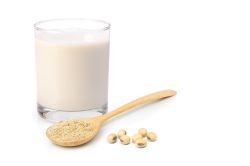
J. David Legan, PhD
Director of Science
David earned his Ph.D. in Food Technology from the University of Reading in the UK by modeling the ecology of mixed microbial populations, and then moved to Campden BRI in a variety of microbiological food safety research and client service roles. During that time, he was project lead for the Bacillus component of the UK’s pathogen modeling program. He moved again to Nabisco Research in New Jersey where he ran the corporate microbiology lab and developed a program of preservation technology development and microbial modeling. After the Kraft Foods acquisition, he moved to Chicago to work on Food Safety and Preservation research, and through modeling and validation studies:
- Optimized Oscar Mayer’s use of lactate and diacetate and their naturally cultured alternatives as Listeria-control agents in Ready to Eat meats
- Specified process conditions central to Oscar Mayer’s commercial launch of High Pressure Pasteurization of naturally cured RTE meats
David had responsibility for the Kraft cultures R&D group, developed a partnership to explore microwave sterilization leading to several patents, and led a program that developed an internal proprietary natural antimicrobial commercialized in several Kraft products. Technologies from his group supported approximately $4 billion in annual sales.
After years as a microbiology "client", he is now back in the "provider" role as Director of Science at Eurofins Microbiology Laboratories, Inc., by way of the Covance Food Solutions group based in Madison, WI, which he joined in 2016. In this role, he ensures appropriate method validation, explores new testing technologies, and fields multiple complicated food microbiology questions.
Products that his team has evaluated or developed and launched include:
- The 3M MDS platform in the Madison microbiology laboratory
- Flow cytometry for enumeration of probiotics
- Strain-level confirmation of probiotic identification using the polymerase chain reaction (PCR)
- Next-generation sequencing using the Oxford Nanopore Technologies GridION sequencing platform for microbial identification and microbiome analysis
Below are resources from David:
The rapid rise of mocktails and alcohol alternatives signals a deeper shift in consumer behavior. As the category matures, brands are discovering that removing alcohol is only the beginning.
Ethylene glycol (EG) and diethylene glycol (DEG) are toxic industrial chemicals that have no place in consumer health products. Unfortunately, products ranging from cough syrups to dietary supplements have been found to contain these contaminants, often with tragic consequences.
As the category of sports nutrition matures, so does the science behind it, and few ingredients illustrate that shift better than creatine. Once viewed as a niche performance supplement, creatine has entered the mainstream, driven by a growing body of research, broader consumer education, and innovation in product formats.
Botanical Reference Materials (BRMs) are the foundation of reliable High Performance Thin- Layer Chromatography (HPTLC) identity testing. They provide the verified chromatographic fingerprint against which botanical samples are compared. Learn how to safeguarding both industry integrity and consumer confidence.
While advanced technology often takes center stage in discussions about scientific accuracy, the age and preparation of samples are equally critical. By prioritizing the seemingly small details, researchers can ensure that their findings stand up to scrutiny and contribute meaningfully to scientific progress.
In the dietary supplement and ingredient industry, protecting consumer health and meeting regulatory expectations are nonnegotiable. One critical aspect of quality control is residual solvent testing. Residual solvents, volatile chemicals used during manufacturing, can remain in products if not properly removed.
As the pet supplement market continues to expand, particularly in preventative care, accurate quantification of MSM has become essential. Manufacturers require robust analytical methods to ensure that label claims are substantiated and that formulations meet quality standards while complying with AAFCO ingredient definitions and state feed regulations.
When evaluating fiber testing approaches, it’s important to review how results differ across sample matrices tested by both the new and previous methods. More laboratories are implementing the Rapid Integrated Dietary Fiber Methods - AOAC Official Methods 2017.16 and 2022.01. The AOAC 2017.16 method measures the insoluble fiber fraction (IDF) and soluble fiber fraction that precipitates in 78% ethanol (SDFP) together, and separately measures the soluble dietary fiber not precipitated in 78% ethanol (SDFS) by HPLC.
In the competitive and highly regulated pet food industry, ingredient authenticity is more than a quality metric; it's a cornerstone of consumer trust and brand integrity. As demand for functional ingredients grows, so does the risk of adulteration. Manufacturers must be equipped with advanced testing strategies to safeguard their supply chains and ensure label claims are accurate.
Discover how innovative ingredient science and data-driven formulation can reduce dairy use in bakery and snack products, cutting carbon footprints without compromising taste or texture.












